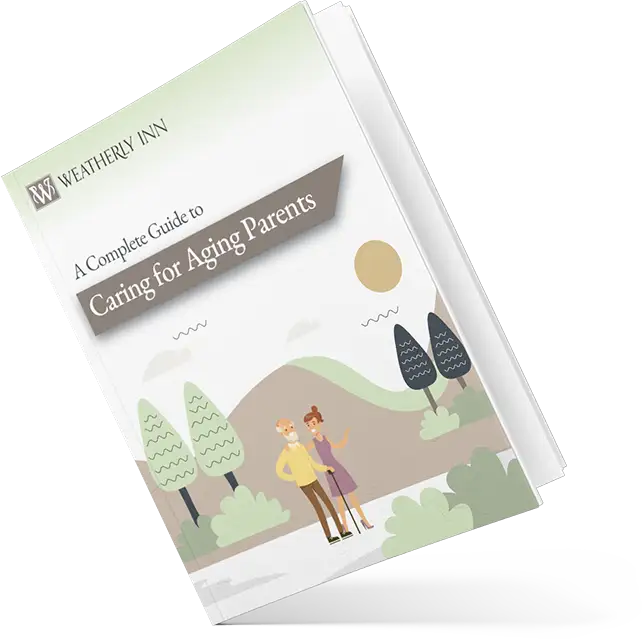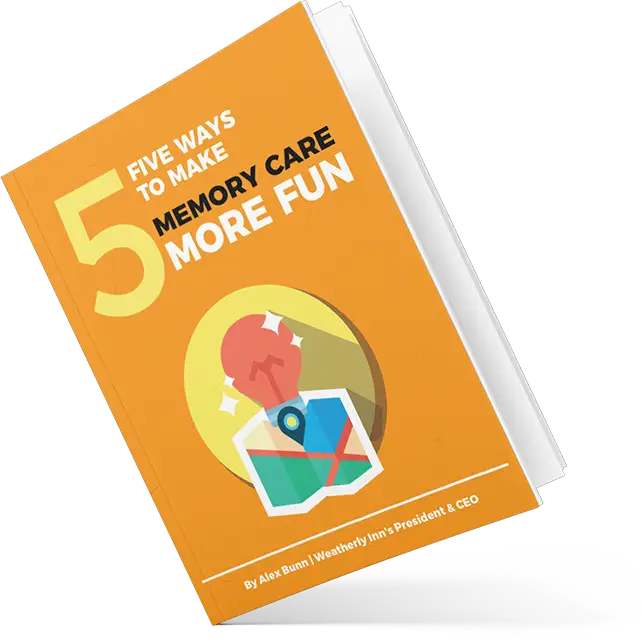January 23, 2020
When you need Seattle-area memory care for a loved one who has been diagnosed with dementia or Alzheimer’s disease, the initial research can seem overwhelming. From pricing and locations to staff members and nutrition, there is so much to consider when looking for the right memory care community. Naturally, you want the best quality of care and environment for your loved one. The staff at Weatherly Inn understands, and we’re here to help.
The good news is that a quality memory care community will reduce the strain of caring for your loved one. With the right care services, you can reduce the stress not only for yourself or your family, but for your loved one as well. That’s why we’ve created this actionable guide. You can use it as a resource to look for the best senior care community to maintain your loved one’s quality of life.
We’ll assume that you’re beginning your memory care community search because your loved one has already displayed some signs of dementia. This can be a scary time! Spouses and adult children in this position are likely to feel nervous. They may be wondering exactly how long they can remain a primary caregiver before things start to fall apart.
If this is your situation, take a deep breath and relax. You can do this! Understanding the levels of care required for older adults with memory problems can help you more easily navigate your memory care search in Seattle.
Understanding Memory Care & Alzheimer’s Care
If your family member has dementia or Alzheimer’s, know that a traditional nursing home or independent living situation isn’t going to offer the right care plan.
Many senior living and assisted living communities in the Seattle-area have memory care units, but the two forms of medical care are not the same. Memory care is a different level of care that is far more comprehensive. You may also hear it referred to as an Alzheimer’s care unit.
- Memory care homes often have 24-hour supervised care with skilled nursing teams (in an assisted living community, they can usually be found on a special floor or wing).
- The layouts of dementia care units are designed purposefully to reduce difficult navigation for those with cognitive impairment.
- A memory care community may be thoroughly locked and secured to prevent wandering among residents.
Dementia care units have dedicated memory care services, similar to physical therapy or occupational therapy, intended to delay the progression of the disease. Every community is different, but additional services might include:
- Cognitive therapies, like music and art
- Exercise and physical well-being programs
- Social activities and other activities of daily living
- Outdoor occupational therapy, like gardening or painting classes
Now that you have a better understanding of memory care, let’s move forward with your search for a Seattle care center.
Write Out Your Expectations of a Memory Care Community
Before you begin your memory care search, spend some time brainstorming about your ideal Seattle area retirement home. Every family is different, but your ideas may include:
- Open schedules for visiting
- One-on-one care with long-time staffers
- Transportation to doctors appointments or worship services
- Highly trained RN’s and a trustworthy nursing care staff
- Outstanding nutrition and a family-like dining setting
- Meticulous medication management
- A location that’s easily accessible for yourself and other family members
- Manageable payment options and staff that can walk you through the paperwork processes
- Access to other professional services, like a barber or income tax professional
- Socialization opportunities for your family member to create meaningful relationships and enjoy themselves
Do you have other key ideas we’ve missed? If so, feel free to leave a comment below for our other readers seeking care options for their aging parent or spouse.
Once you’ve thought about the crucial care needs for your loved one, don’t hesitate to ask his or her doctor for referrals of memory care communities in the Seattle area.
Get Professional Guidance
Your loved one’s primary physician is likely to have resources at hand to help you choose a quality memory care community. They’ll probably offer you a handful of memory loss and care services brochures to keep as well.
If you take away one thing from this article, let it be this: visit memory care communities in person! We’ve covered this in more detail with another blog, but you should definitely tour any community you’re interested in personally, and eat a meal there. This is the only way to get a real understanding of the level of care being provided for seniors and to find out if their food is as good as they say it is.
After you’ve visited a few residential care homes, it will be easy to narrow down your choices to select the best one for your family.

Is This Memory Care Community Right for Your Family?
At Weatherly Inn, we understand that every family situation is unique and each requires special care. There is no cookie-cutter solution for families dealing with dementia and Alzheimer’s disease.
So review your health care checklist with other family members. Open up a discussion about memory care communities they’ve heard of or had a great experience with. Consider the traffic and travel time it will take for other family members to visit the community you select. The rest of your family will appreciate it.
Modern technology has made it easier than ever to have a meaningful conversation with family members, even if they’re out of town or incredibly busy. Consider:
- using group text messages to keep everyone “in the loop”
- starting a private Facebook group and inviting your family
You don’t need to increase your stress levels by hosting a large family meeting to talk about your choices in a memory care community, but if that’s something you’d enjoy doing, feel free! Whether in person or through a text message, it’s a good idea to open up the doors for communication. Your other family members will appreciate the opportunity to be involved in the decision-making process, and you might find their input very helpful.
Don’t Be Afraid to Ask Family Members for Help
Speaking of helpful family members, the road to quality memory care in Seattle might have a few minor roadblocks or hurdles. If you’re asking yourself questions like “Who will watch the kids while I tour memory care communities all weekend?” or “How will I get transportation to these appointments?” don’t hesitate to ask family for help!
Remember, you’re acting as a caregiver for your parent, grandparent, or spouse. That doesn’t mean the rest of the family doesn’t care as much as you do. By allowing them to share their ideas and concerns, you’ll make the process more meaningful for your entire family.
The decision to place a loved one in a memory care community is never an easy one. By working alongside other family members, and allowing them to voice their questions, opinions, and fears, you’ll build a better communication highway among yourselves for the future.
Asking Family Members for Financial Help
Financially speaking, your other family members might be willing to help take on some of the costs of eldercare too. (If you’d like to learn more about funding options for long term care, like Medicare and Medicaid, we’ve covered it here).
It’s essential to allow your entire family to help financially with monthly costs. Quality memory care in Seattle can get costly, so every family should review all their financing options.
If you need help talking to your other family about finances as you begin your memory care search, reach out to us. Our trained professionals are ready to help you make the best decision for your loved one. You can also download our guide to choosing the right senior community for more helpful advice.



